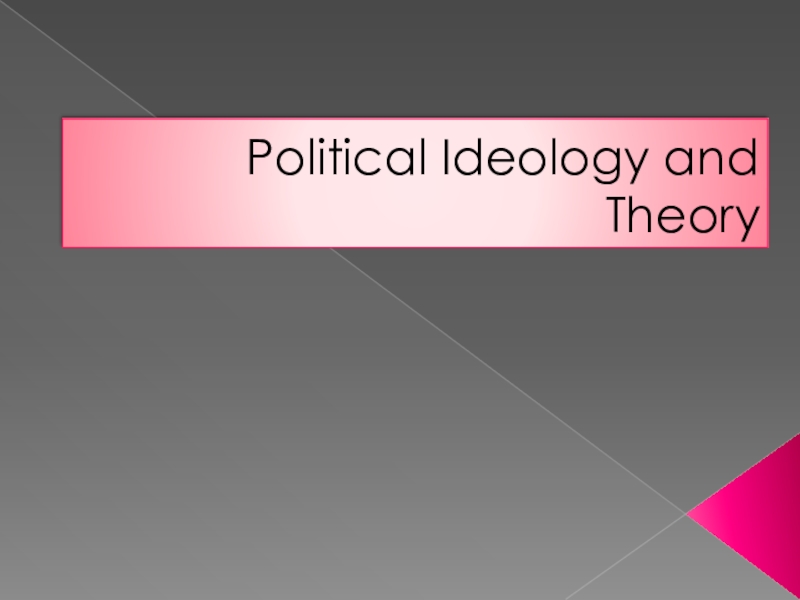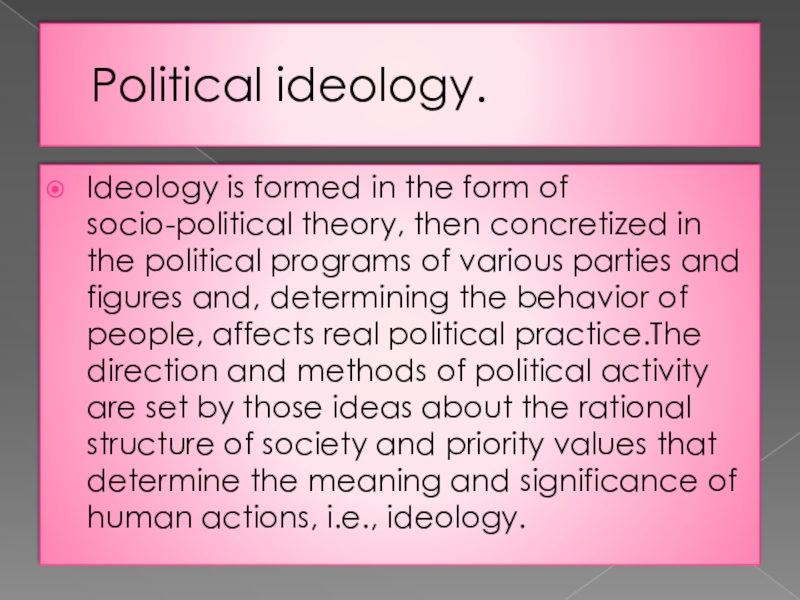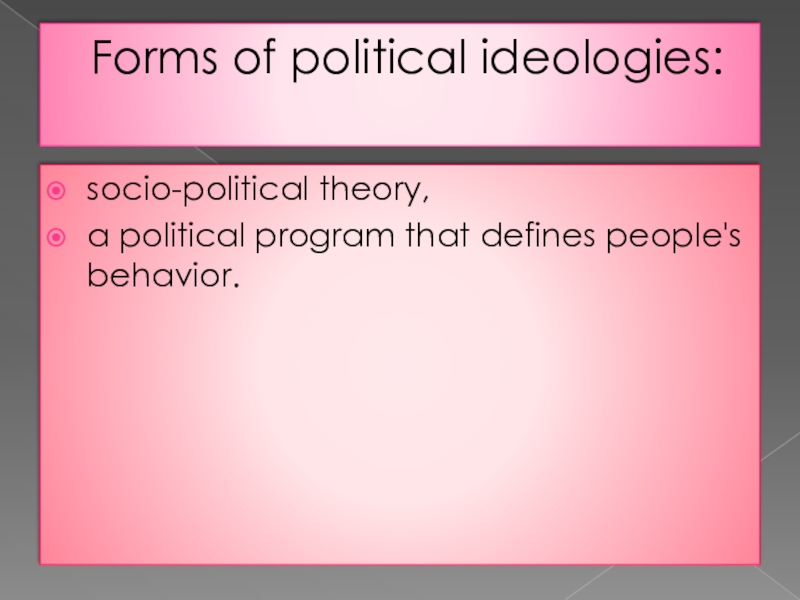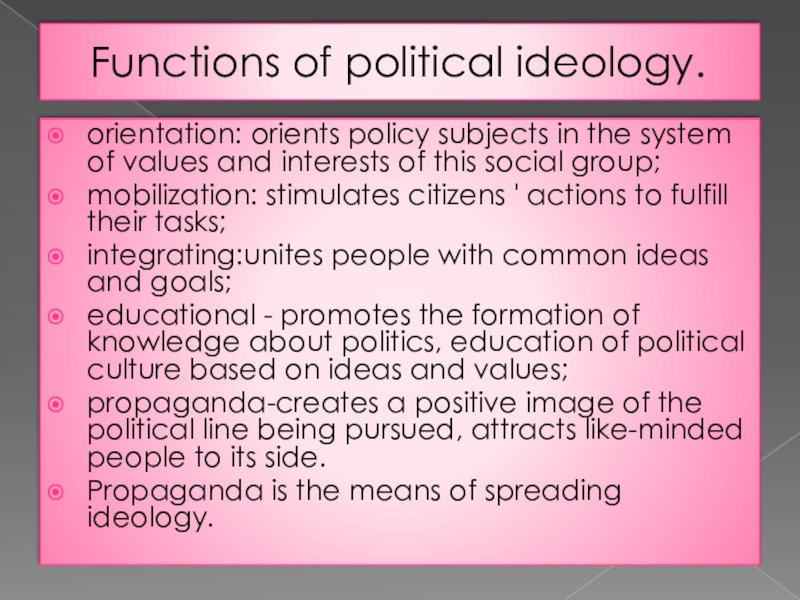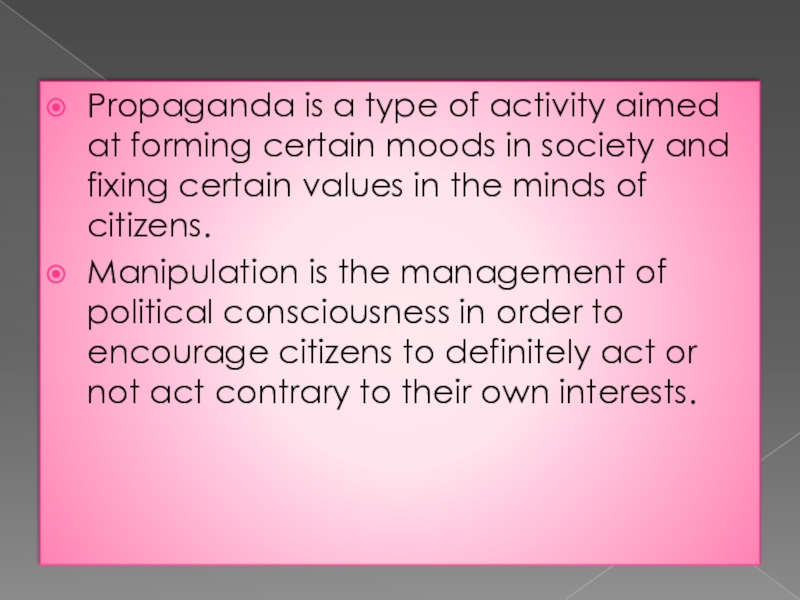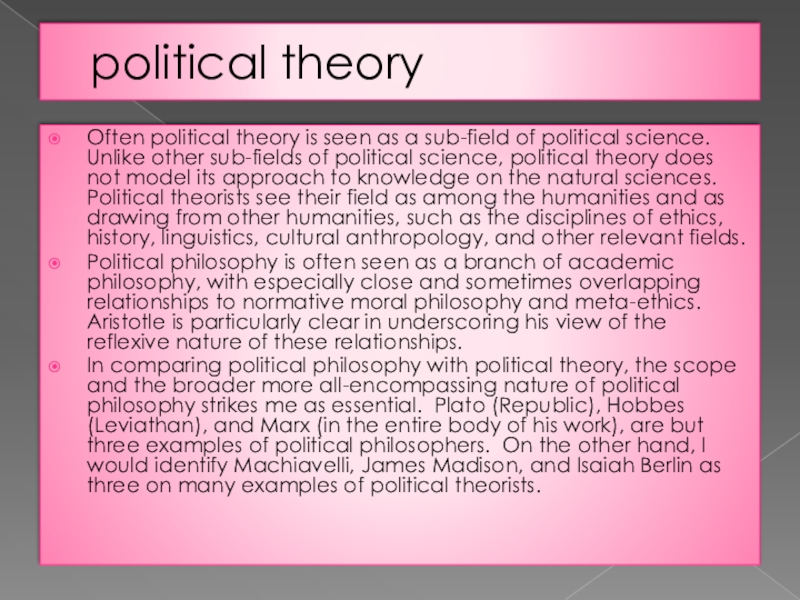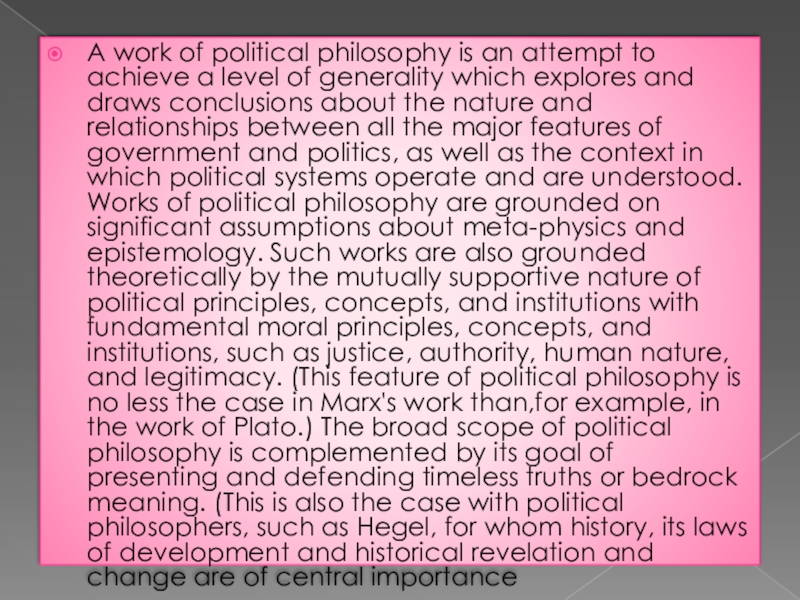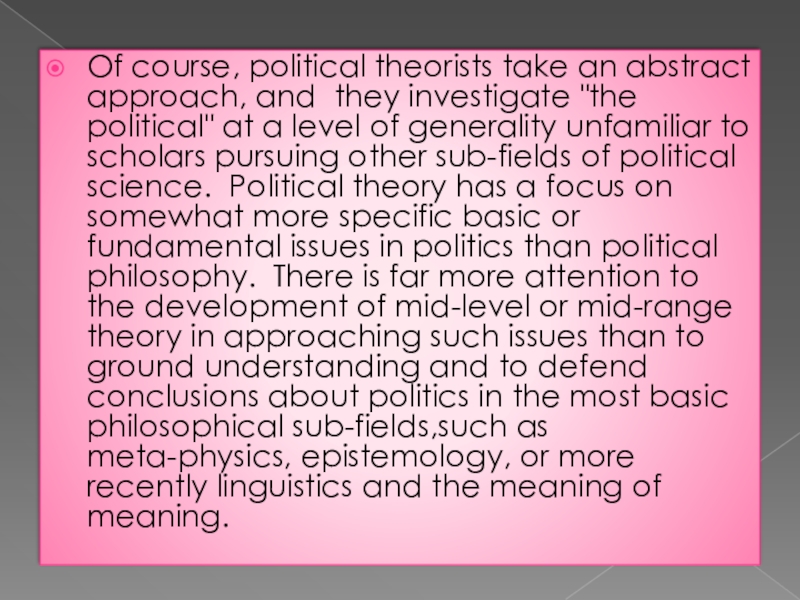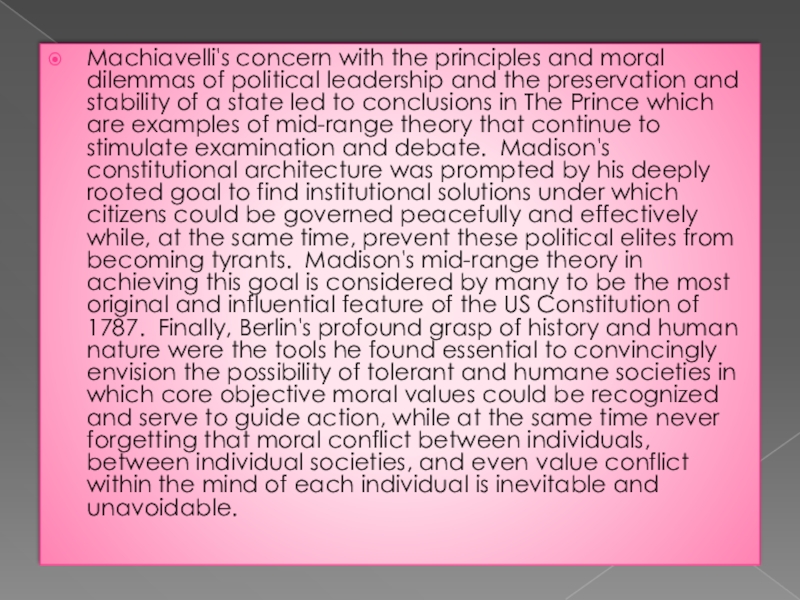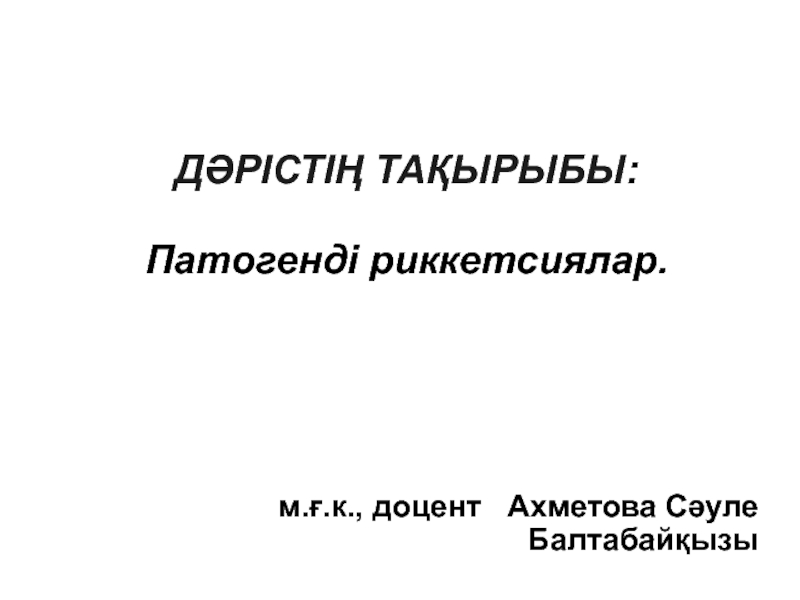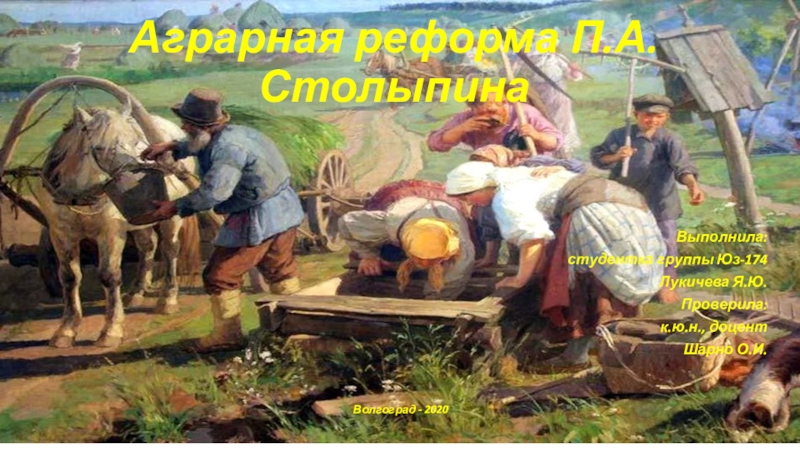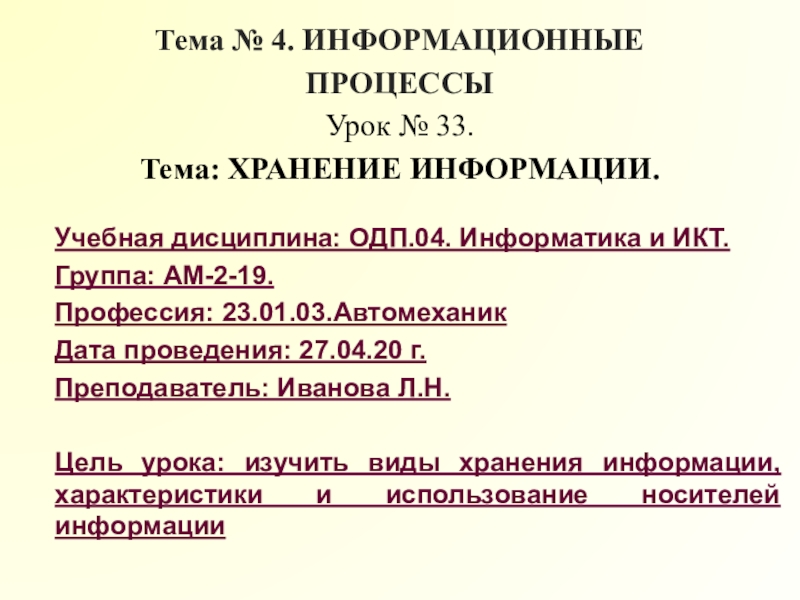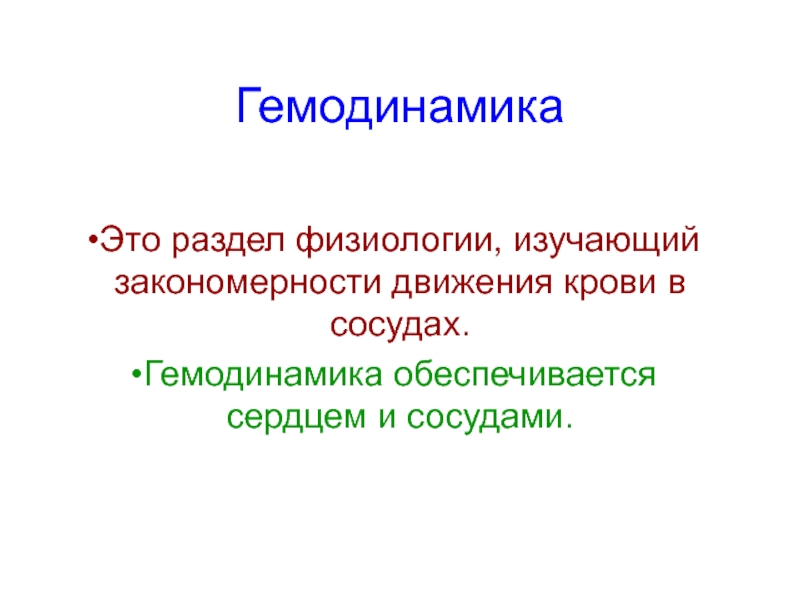Разделы презентаций
- Разное
- Английский язык
- Астрономия
- Алгебра
- Биология
- География
- Геометрия
- Детские презентации
- Информатика
- История
- Литература
- Математика
- Медицина
- Менеджмент
- Музыка
- МХК
- Немецкий язык
- ОБЖ
- Обществознание
- Окружающий мир
- Педагогика
- Русский язык
- Технология
- Физика
- Философия
- Химия
- Шаблоны, картинки для презентаций
- Экология
- Экономика
- Юриспруденция
Political Ideology and Theory
Содержание
- 1. Political Ideology and Theory
- 2. Political ideology.Ideology is formed in the form
- 3. Forms of political ideologies: socio-political theory,a political program that defines people's behavior.
- 4. Functions of political ideology.orientation: orients policy subjects
- 5. Propaganda is a type of activity aimed
- 6. political theoryOften political theory is seen as
- 7. A work of political philosophy is an
- 8. Of course, political theorists take an abstract
- 9. Machiavelli's concern with the principles and moral
- 10. Thanks for attention
- 11. Скачать презентанцию
Political ideology.Ideology is formed in the form of socio-political theory, then concretized in the political programs of various parties and figures and, determining the behavior of people, affects real political practice.The
Слайды и текст этой презентации
Слайд 3Forms of political ideologies:
socio-political theory,
a political program that defines people's
behavior.
Слайд 4Functions of political ideology.
orientation: orients policy subjects in the system
of values and interests of this social group;
mobilization: stimulates citizens
' actions to fulfill their tasks;integrating:unites people with common ideas and goals;
educational - promotes the formation of knowledge about politics, education of political culture based on ideas and values;
propaganda-creates a positive image of the political line being pursued, attracts like-minded people to its side.
Propaganda is the means of spreading ideology.
Слайд 5Propaganda is a type of activity aimed at forming certain
moods in society and fixing certain values in the minds
of citizens.Manipulation is the management of political consciousness in order to encourage citizens to definitely act or not act contrary to their own interests.
Слайд 6political theory
Often political theory is seen as a sub-field of
political science. Unlike other sub-fields of political science, political theory
does not model its approach to knowledge on the natural sciences. Political theorists see their field as among the humanities and as drawing from other humanities, such as the disciplines of ethics, history, linguistics, cultural anthropology, and other relevant fields.Political philosophy is often seen as a branch of academic philosophy, with especially close and sometimes overlapping relationships to normative moral philosophy and meta-ethics. Aristotle is particularly clear in underscoring his view of the reflexive nature of these relationships.
In comparing political philosophy with political theory, the scope and the broader more all-encompassing nature of political philosophy strikes me as essential. Plato (Republic), Hobbes (Leviathan), and Marx (in the entire body of his work), are but three examples of political philosophers. On the other hand, I would identify Machiavelli, James Madison, and Isaiah Berlin as three on many examples of political theorists.
